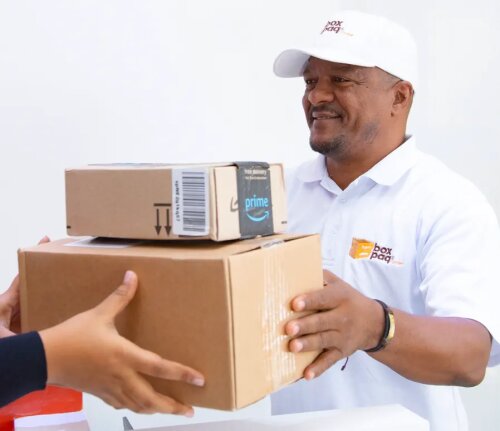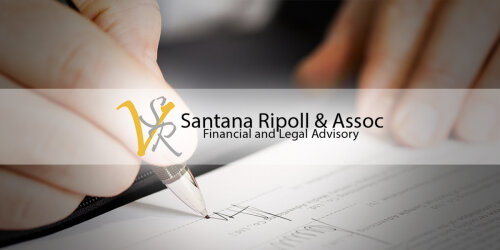Best Oil, Gas & Energy Lawyers in Puerto Plata
Share your needs with us, get contacted by law firms.
Free. Takes 2 min.
List of the best lawyers in Puerto Plata, Dominican Republic
About Oil, Gas & Energy Law in Puerto Plata, Dominican Republic
Puerto Plata, a picturesque region in the Dominican Republic, might not be the first area that comes to mind when thinking about oil, gas, and energy industries. However, like many developing regions, it is increasingly becoming involved in energy development. The Dominican Republic, as a whole, is focused on reducing its dependency on fossil fuels, diversifying its energy sources, and incorporating more sustainable energy solutions. With the country's governmental focus on energy expansion and transition, legal guidance becomes essential in navigating the complexities involved in this sector.
Why You May Need a Lawyer
There are various scenarios where you might require legal assistance concerning oil, gas, and energy sectors in Puerto Plata. These include:
- Contract Negotiations: Engaging in contracts with local companies or international entities may require expert legal guidance to ensure favorable terms and compliance with Dominican law.
- Regulatory Compliance: Adhering to the numerous environmental regulations and energy policies can be a challenging task without legal expertise.
- Land Use and Environmental Impact: Issues related to land acquisition, environmental permits, and community impact are crucial and often require legal interventions to manage disputes or compliance matters.
- Dispute Resolution: Whether it's conflicts over land rights, contract breaches, or other grievances, having legal support is instrumental in navigating arbitration or litigation processes.
Local Laws Overview
The Dominican Republic's legal framework for oil, gas, and energy heavily regulates the exploration, production, and distribution of energy resources. Key aspects include:
- Energy Policies: Focus on diversifying energy sources, promoting investments in renewable energy, and improving energy efficiency.
- Environmental Laws: Strict laws that aim to protect the environment from the adverse effects of energy extraction and production activities.
- Investment Laws: Encouragement of foreign investments through incentives, robust legal protections, and transparent processes.
- Licensing and Permits: Requirements for acquiring licenses for exploration, extraction, and energy projects, which involve meticulous compliance with local regulations.
Frequently Asked Questions
What types of energy projects are common in Puerto Plata?
Puerto Plata has seen an uptick in renewable energy projects, particularly in solar and wind energy, due to government incentives and favorable environmental conditions.
Do I need local partners to invest in energy projects in Puerto Plata?
While not always mandatory, having local partners can be beneficial for navigating legal requirements and understanding the local market dynamics.
What are some common legal challenges in the energy sector?
These include securing land rights, enforcing contracts, obtaining the necessary permits, and ensuring regulatory compliance.
How can I ensure my energy project complies with environmental laws?
Conducting an Environmental Impact Assessment (EIA) and obtaining all necessary environmental permits are crucial steps for compliance.
What incentives are available for renewable energy projects?
The Dominican Republic offers various tax breaks, import duty exemptions, and other incentives to promote renewable energy projects.
How are energy disputes typically resolved in Puerto Plata?
Many disputes are settled through arbitration or mediation, though litigation in Dominican courts is also an option.
Can foreign companies fully own energy projects in the Dominican Republic?
Yes, there are no restrictions on foreign ownership, although local joint ventures can facilitate smoother operations and compliance.
Is financing readily available for energy projects in Puerto Plata?
Yes, financing is available through local banks, international lenders, and public-private partnerships, especially for sustainable projects.
What is the process for obtaining an energy exploration license?
The process involves submitting an application to the Ministry of Energy and Mines, including detailed project plans and environmental considerations.
Are there any specific legal firms specializing in energy law in Puerto Plata?
Yes, a number of law firms specialize in energy law, offering expertise in local regulations, contracts, and dispute resolution related to the sector.
Additional Resources
For further assistance and information, consider reaching out to the following resources:
- Ministry of Energy and Mines (MEM): The main governmental body overseeing energy policy and regulations in the Dominican Republic.
- Centro Nacional de Energías Renovables (CNEER): An organization focused on promoting renewable energy projects.
- Chamber of Commerce and Production of Puerto Plata: Offers guidance and support for business ventures, including those in the energy sector.
Next Steps
If you need legal assistance in the field of oil, gas, and energy in Puerto Plata, consider the following steps:
- Identify Your Needs: Determine the specific nature of legal assistance you require, such as contract negotiation or regulatory compliance.
- Research Law Firms: Seek legal professionals with expertise in energy law and local regulations.
- Schedule Consultations: Meet with potential lawyers to discuss your needs, understand their experience, and evaluate their proposed approaches.
- Verify Credentials: Ensure the legal professionals you choose are licensed and have a proven track record in the energy sector.
- Engage Legal Services: Once you have selected a lawyer or firm, formalize the engagement and start working on addressing your legal needs.
Lawzana helps you find the best lawyers and law firms in Puerto Plata through a curated and pre-screened list of qualified legal professionals. Our platform offers rankings and detailed profiles of attorneys and law firms, allowing you to compare based on practice areas, including Oil, Gas & Energy, experience, and client feedback.
Each profile includes a description of the firm's areas of practice, client reviews, team members and partners, year of establishment, spoken languages, office locations, contact information, social media presence, and any published articles or resources. Most firms on our platform speak English and are experienced in both local and international legal matters.
Get a quote from top-rated law firms in Puerto Plata, Dominican Republic — quickly, securely, and without unnecessary hassle.
Disclaimer:
The information provided on this page is for general informational purposes only and does not constitute legal advice. While we strive to ensure the accuracy and relevance of the content, legal information may change over time, and interpretations of the law can vary. You should always consult with a qualified legal professional for advice specific to your situation.
We disclaim all liability for actions taken or not taken based on the content of this page. If you believe any information is incorrect or outdated, please contact us, and we will review and update it where appropriate.











